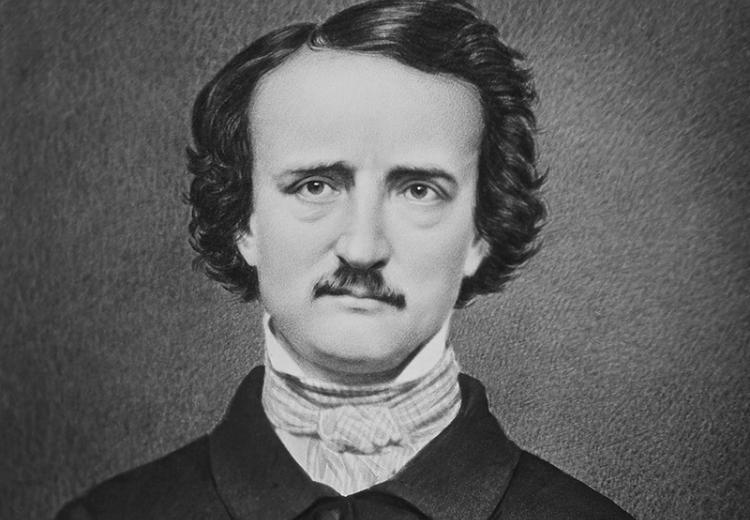Edgar Allan Poe, Ambrose Bierce, and the Unreliable Narrator

Edgar Allen Poe.
"There is a radical error, I think, in the usual mode of constructing a story … I prefer commencing with the consideration of an effect."
—Edgar Allan Poe in "The Philosophy of Composition", Graham's Magazine, April 1846, pp. 163-167.
Both Ambrose Bierce and Edgar Allan Poe wrote stories with—as Poe noted in "The Philosophy of Composition"—the "consideration of a novel effect … a vivid effect" on the reader as a central goal. One way to accomplish such an effect is by controlling, through the narration, the information available to the reader and the veracity of that information. The narrator of Poe's "Tell Tale Heart" assures us "how healthily—how calmly I can tell you the whole story," a statement later belied by the content and style of the tale. The narration in Bierce's "An Occurrence at Owl Creek Bridge" reveals at the last moment that the action in Part II took place only in the mind of the dying prisoner. Help your students consider a variety of narrative stances as they analyze how Bierce and Poe utilize narration in two stories.
Note: This lesson may be taught either as a stand-alone lesson or as a prequel to the complementary EDSITEment lesson Edgar Allan Poe, Ambrose Bierce, and the Unreliable Biographers. Although designed for grades 9-12, many of the articles and resources in Edgar Allan Poe, Ambrose Bierce, and the Unreliable Biographers can be adapted for younger students as well.
Guiding Questions
How did Ambrose Bierce and Edgar Allan Poe use narration to create their intended effect in the reader?
What other texts have similar narrative styles as those used by Bierce and Poe?
Learning Objectives
Define the term "unreliable narrator" and provide examples from Poe and/or Bierce texts for support.
Cite examples of different points of view (e.g., limited and omniscient, subjective and objective) from Poe and/or Bierce texts.
Contrast points of view in narrative text and explain how they affect the overall theme of the work.
